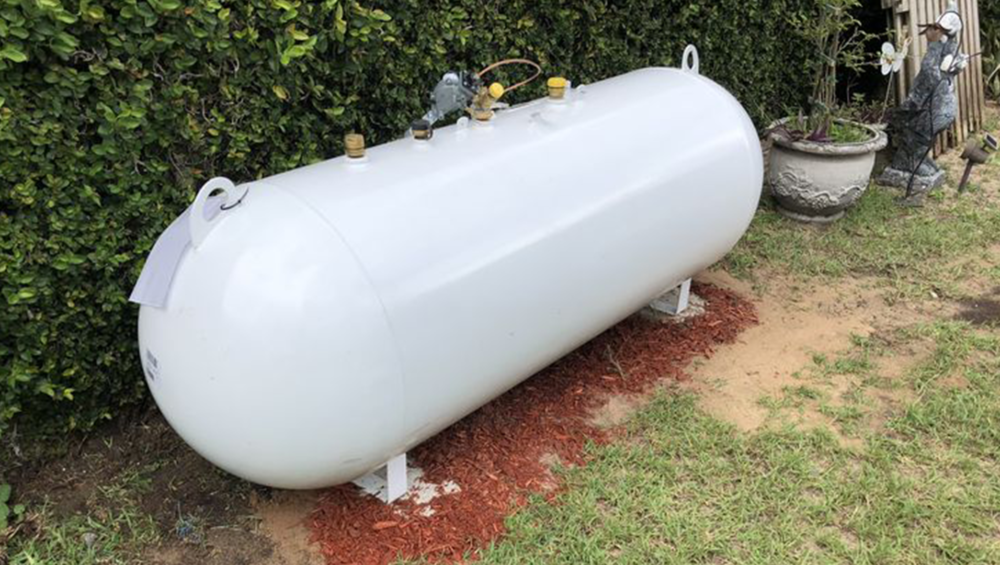There are various ways you can heat your homes. Choosing the right fuel can significantly impact your comfort, budget, and the environment. Two popular choices are propane and oil. Both have their merits and drawbacks, but propane often stands out as the better choice. In today’s blog, we will be comparing propane and oil by examining their efficiency, environmental impact, cost, and convenience.

Factors for Comparison
Efficiency
Propane: Propane is well known for its high efficiency. Propane furnaces can achieve efficiency ratings of up to 98%, which means that almost all the fuel is converted into usable heat. This high efficiency reduces fuel consumption and lowers heating costs over time. Whether you’re using a 500-gallon propane tank or a smaller propane cylinder, you can be assured of getting maximum heat output from your fuel.
Oil: Oil furnaces typically have efficiency ratings between 80% and 90%. While this is still relatively efficient, it means that a portion of the fuel is wasted. Over time, this lower efficiency can result in higher fuel consumption, which increases heating costs. Additionally, oil furnaces often require more maintenance to keep the efficiency levels steady.
Environmental Concerns
Propane: Propane is a clean-burning fuel. It produces fewer greenhouse gases and pollutants compared to oil. Propane is a more environmentally friendly choice as burning it emits significantly less carbon dioxide, sulfur dioxide, and particulate matter. Using propane can help reduce your carbon footprint and contribute to cleaner air quality.
Oil: Oil combustion produces higher levels of carbon dioxide, sulfur dioxide, and particulate matter. These emissions contribute to air pollution and have a more significant impact on the environment. Additionally, oil spills can have severe environmental hazards as they can contaminate soil and water sources.
Price
Propane: While the price per gallon of propane can sometimes be higher than oil, propane’s higher efficiency means you’ll use less fuel to achieve the same amount of heat. This decreases overall heating costs. Propane suppliers offer a variety of tank sizes, such as 100 lb propane tanks and 250-gallon propane tanks, allowing you to choose the best option for your needs.
Oil: Oil prices are often dependent on global market fluctuations. While oil furnaces can be less expensive to install initially, the ongoing costs of oil delivery and maintenance can add up. Oil tanks also require regular inspections to prevent leaks and ensure safe operation, contributing to higher maintenance costs.
Convenience
Propane: Propane offers versatility other than usage for heating. It can be used for cooking, water heating, and even powering generators. This multi-use capability makes propane a convenient choice for many. Propane delivery services are widely available, and you can easily find “propane delivery near me” or “propane gas delivery near me” with a quick search.
Oil: Oil is primarily used for heating and is less versatile than propane. While oil delivery services are also available, finding a “propane supplier near me” tends to be easier and more convenient. Oil tanks are typically larger and more cumbersome. They require more space and can need more maintenance.
Why Propane is a Better Option
When comparing propane and oil for heating, propane’s advantages become evident. Propane’s higher efficiency means you get more heat from less fuel, resulting in lower overall costs. Its cleaner-burning nature makes it an environmentally responsible choice, contributing to reduced greenhouse gas emissions and improved air quality.
Moreover, the convenience and versatility of propane make it a superior option. Propane can be used for various applications beyond heating, adding to its value as a household fuel. With reliable propane delivery services and a range of propane tank options, managing your propane supply is straightforward and hassle-free.
Conclusion
Choosing between propane and oil for heating involves considering factors like efficiency, environmental impact, cost, and convenience. While both fuels have their pros and cons, propane emerges as the better choice. Its high efficiency, cleaner emissions, and versatility make it an excellent option for modern households.


